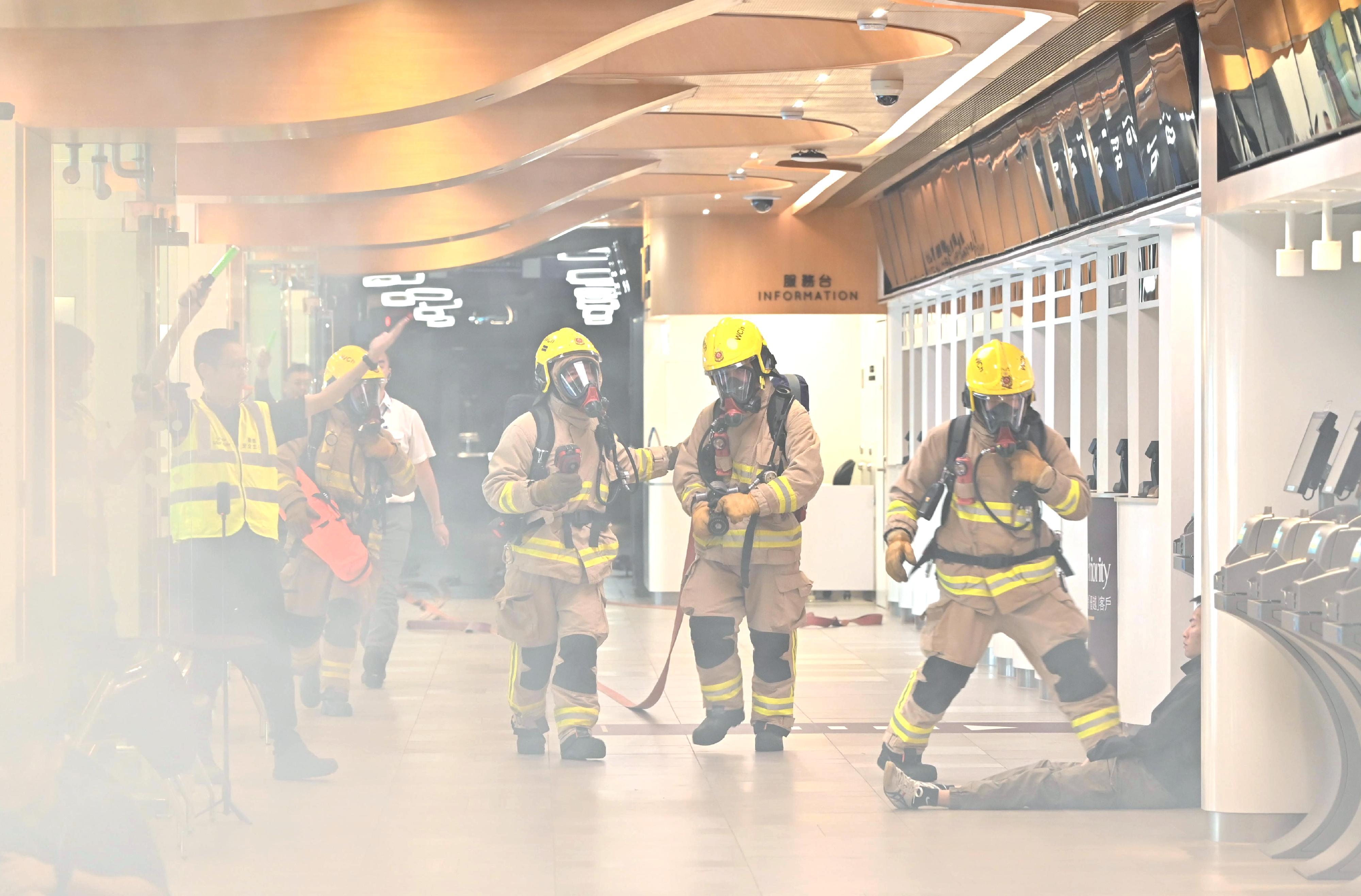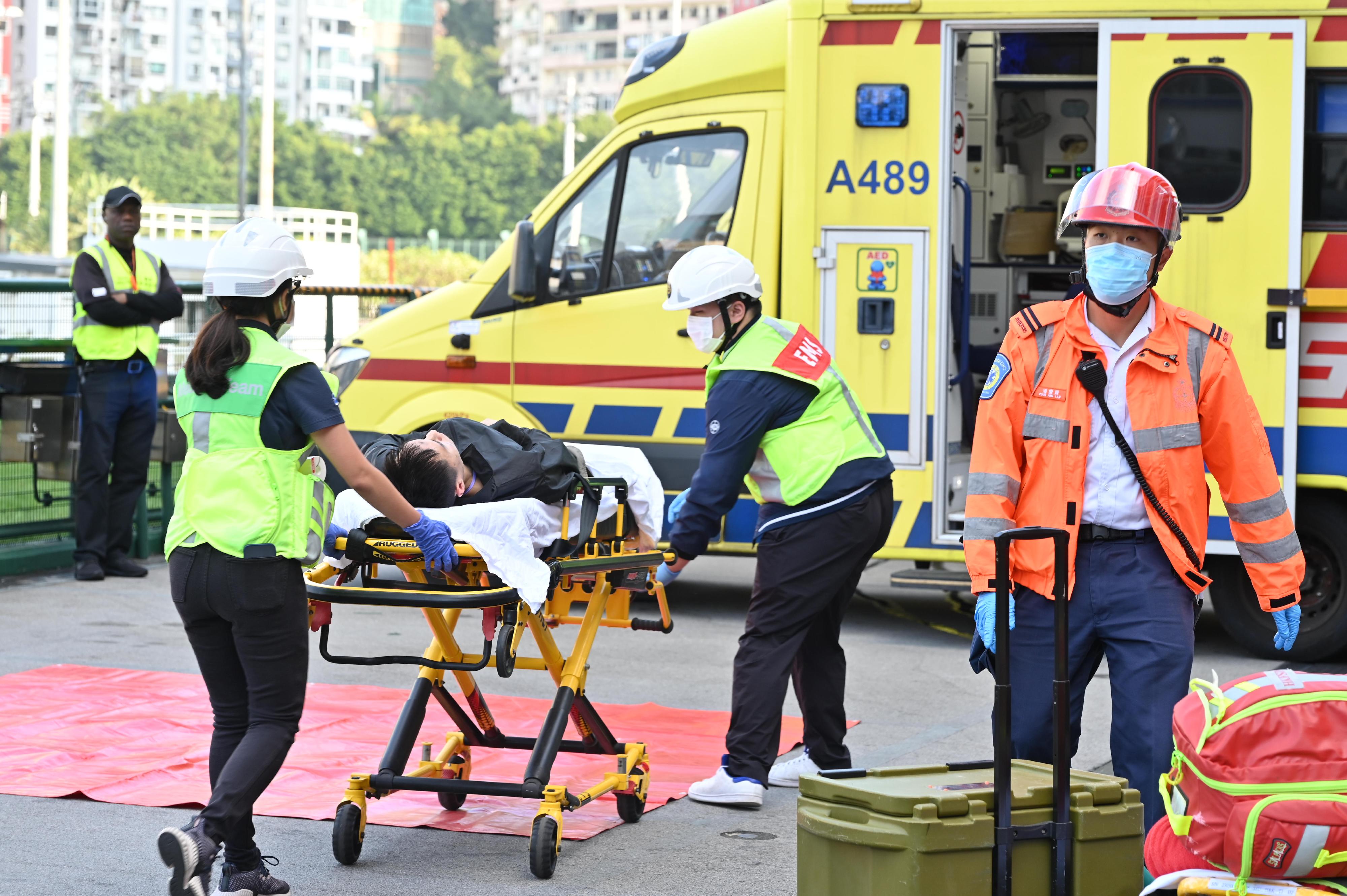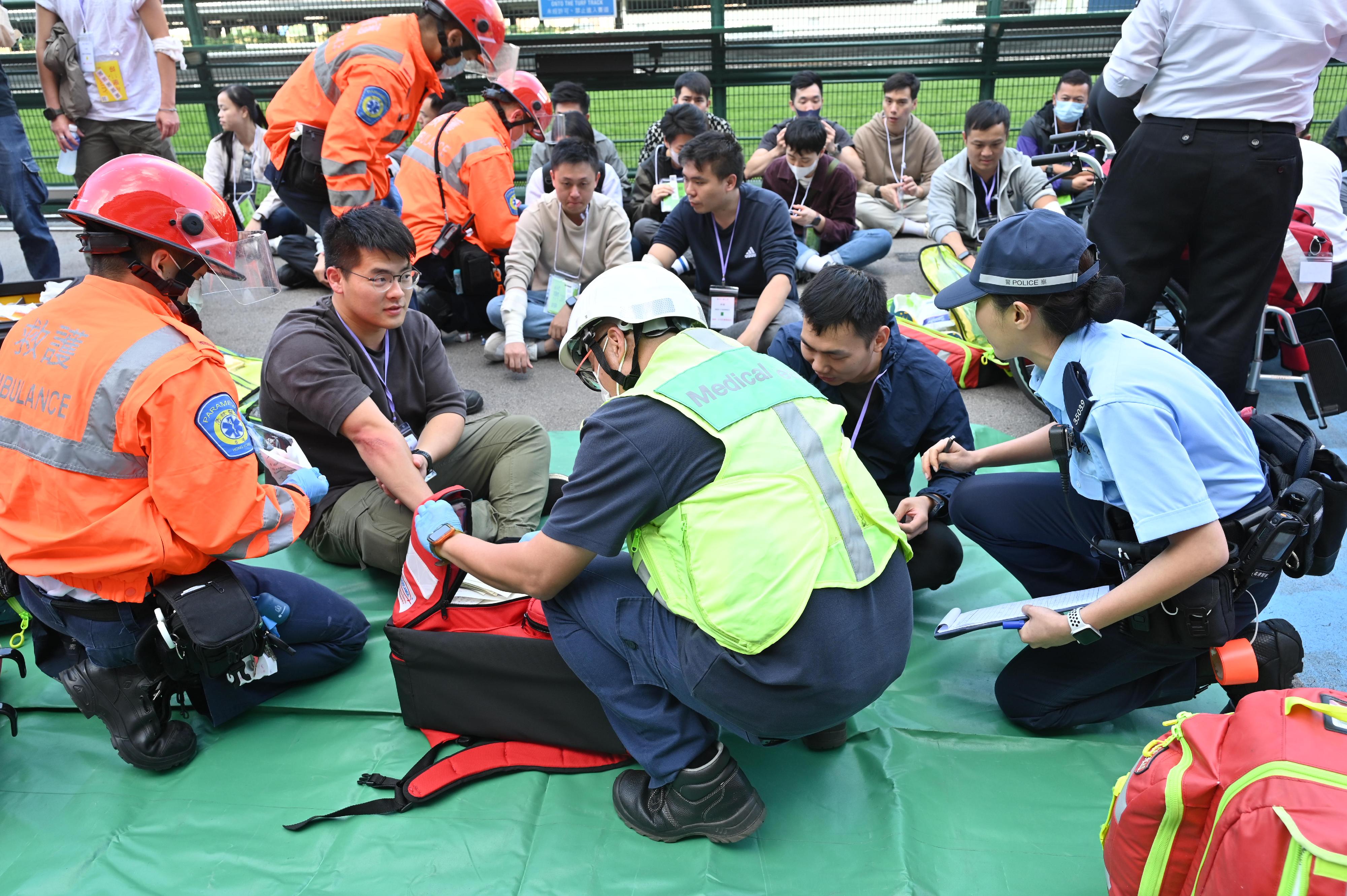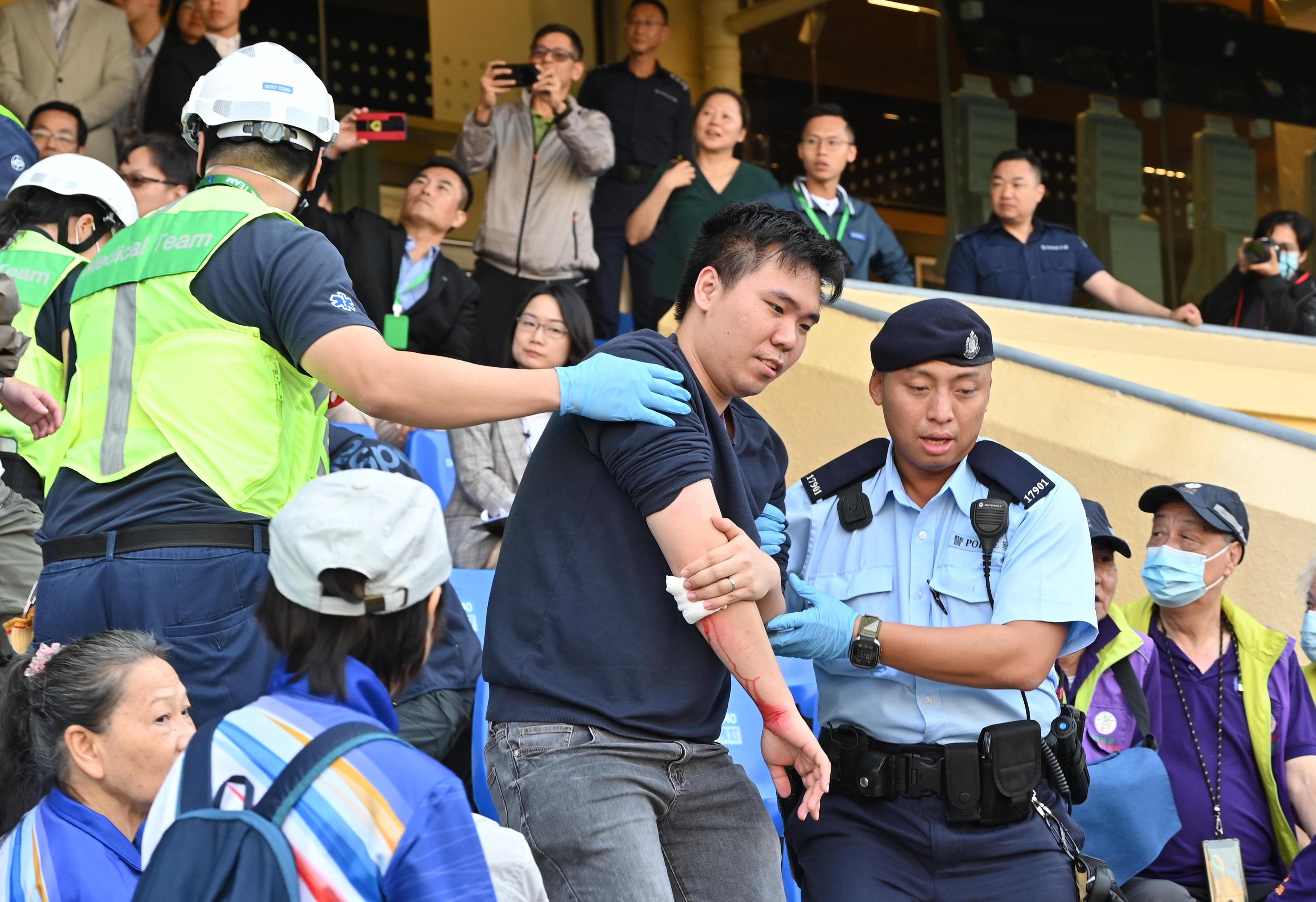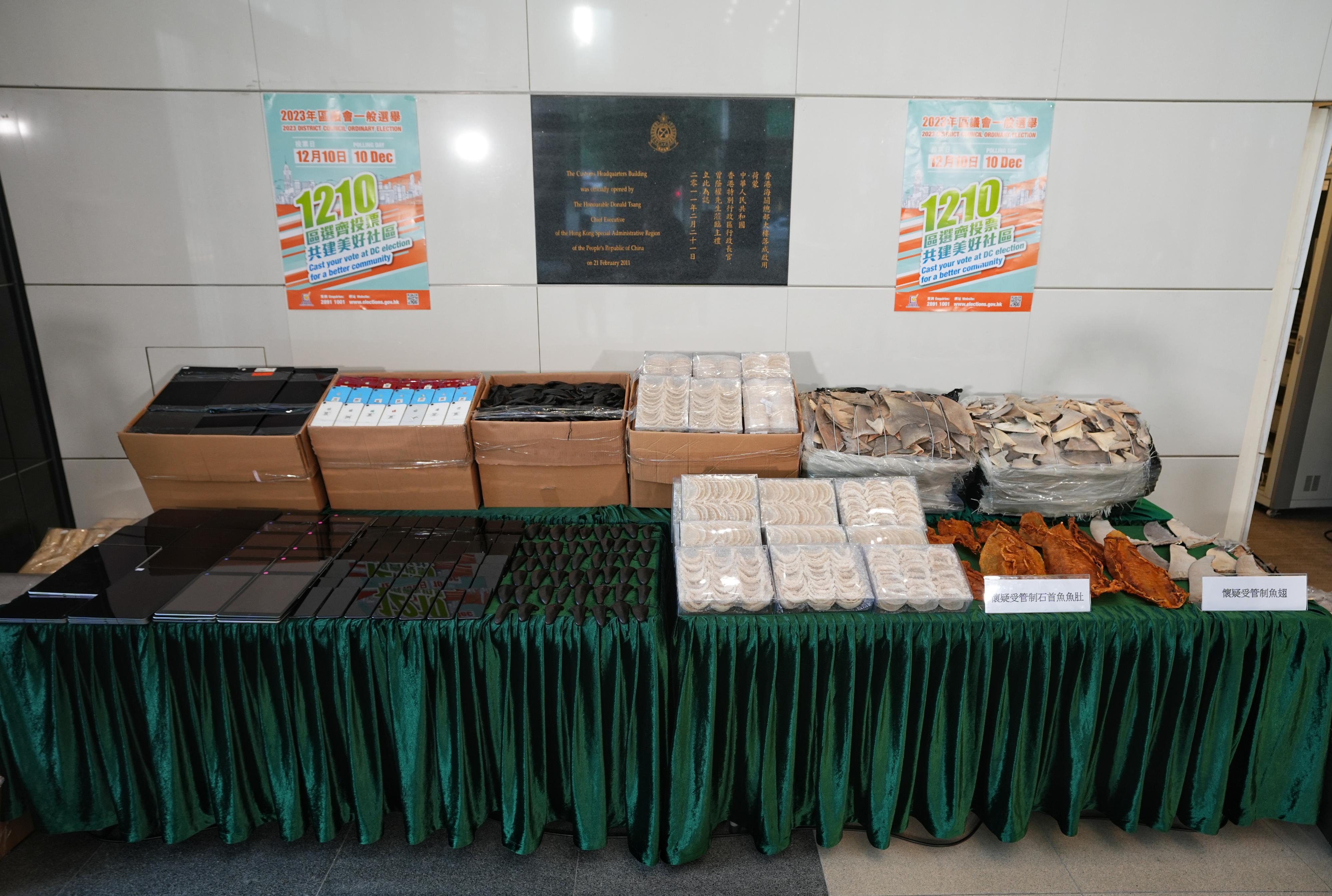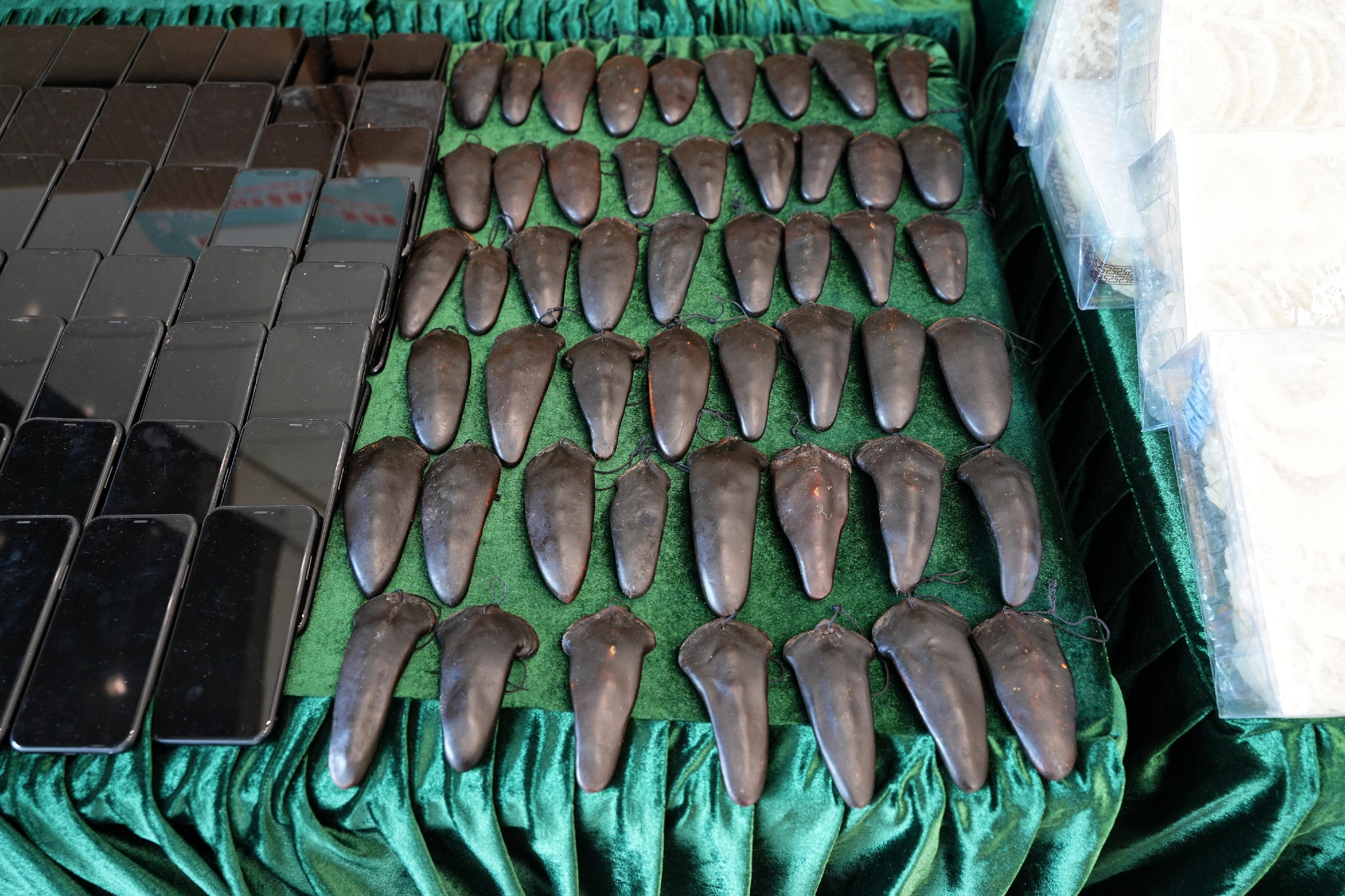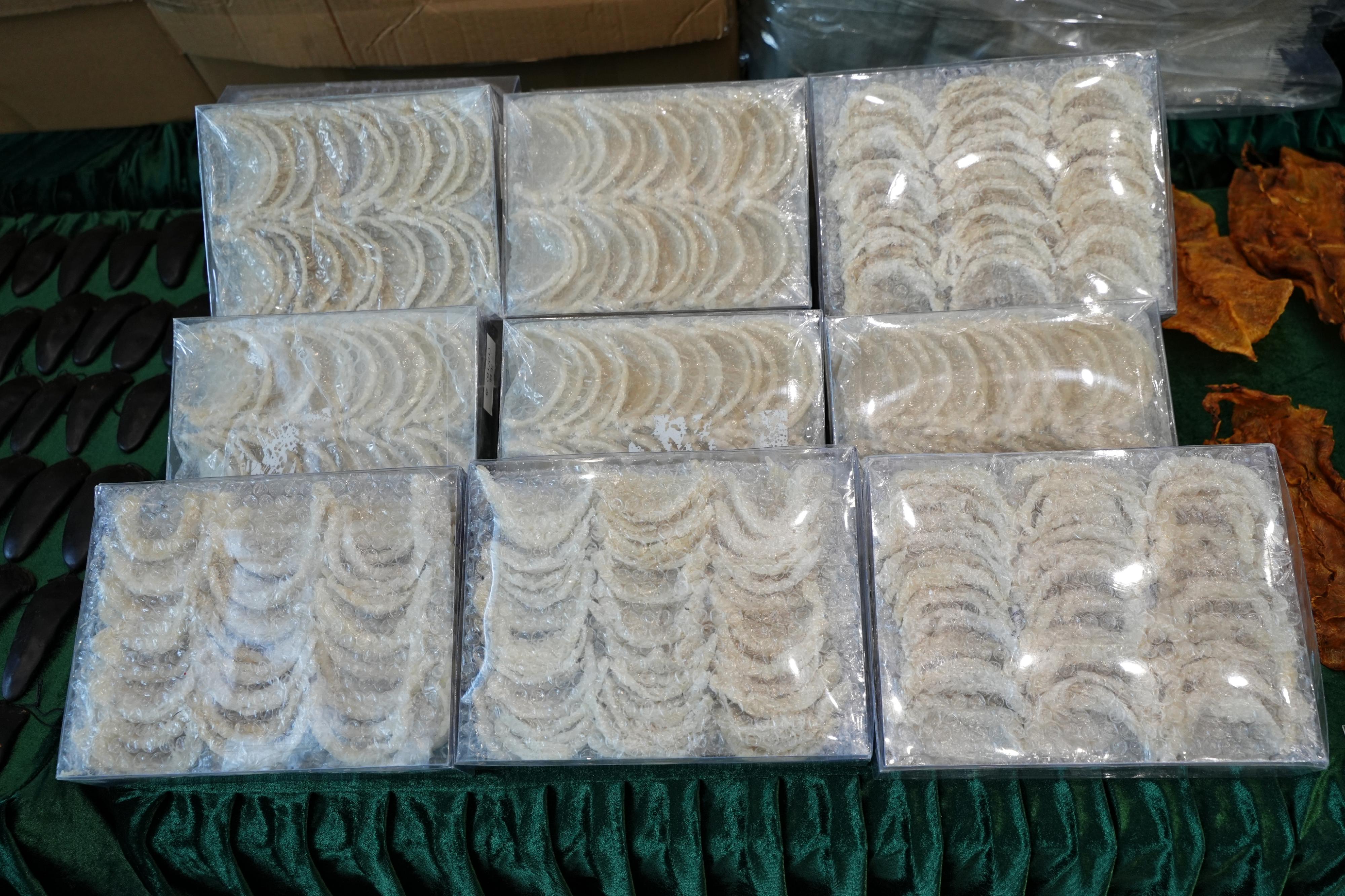Police Hong Kong Island Regional Headquarters conducts inter-departmental major incident exercise to enhance collaboration and response capabilities (with photos)
Police Hong Kong Island Regional Headquarters conducted an inter-departmental major incident exercise codenamed “BROKENPIN” with the Fire Services Department, Hospital Authority, Hong Kong Jockey Club, St. John Ambulance Brigade and Hong Kong Association for Conflict and Catastrophe Medicine at Happy Valley Racecourse this afternoon (November 23). The exercise simulated a large-scale fire incident to enhance the collaboration, emergency response capabilities and efficiency of rescues of Police and stakeholders.
The exercise simulated a fire which broke out at the betting hall, causing multiple casualties on a race day. Officers promptly commenced rescue operation, evacuated the crowds and rendered emergency care to the injured. The rescue team set up a command post and triage station at scene for the injured, which facilitated a timely and orderly rescue operation while bringing the situation until control. The injured were taken to hospitals while other people at the scene were let to a safe area. In addition, the utilisation of drones by Police in the exercise provided the command post with real-time information and thus enhanced the rescue efficiency.
More than 400 officers from the Police Tactical Unit, Emergency Unit of Hong Kong Island, Wan Chai District of Police, Fire Services Department, Hospital Authority, Hong Kong Jockey Club, Hong Kong St. John Ambulance and Hong Kong Association for Conflict and Catastrophe Medicine took part in the exercise. Moreover, Police invited over 200 members of “Senior Police Call” from various districts in Hong Kong Island to take part in the exercise, with a view to increasing public awareness of personal safety and self-protection, as well as further promoting the knowledge of “Run, Hide, Report” and “Spot and Report”.
Through this exercise, Police hope that the public will gain a better understanding of the roles and responsibilities among Police and various departments in handling major incidents. Police will continue to maintain close communication with stakeholders, conduct regular inter-departmental exercises, review contingency plans for major incidents as well as strengthen the coordination between different departments and related organisations.
